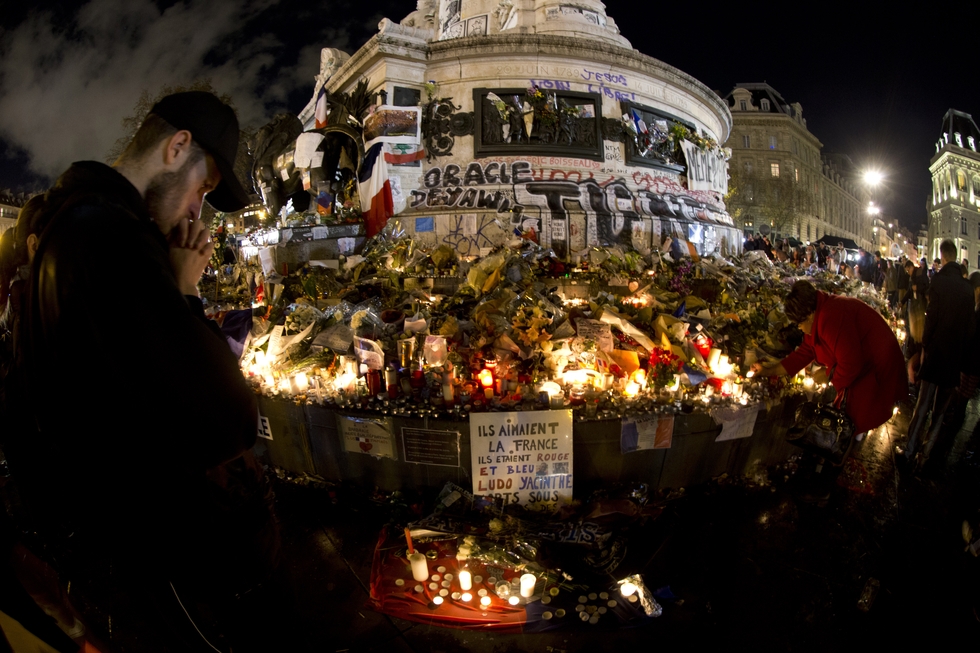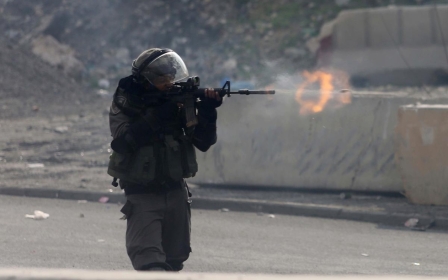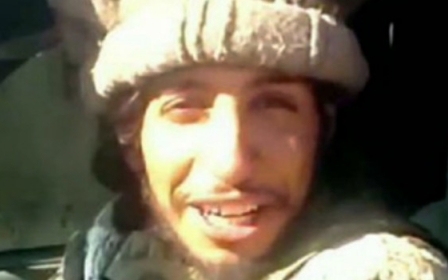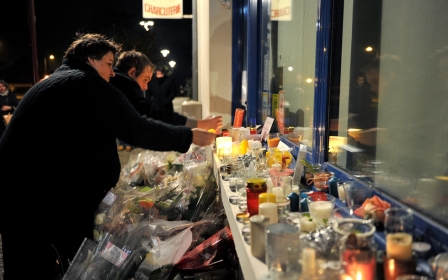From Paris to Palestine: the psychology of solidarity

This week I have been watching a spread of global responses to the Paris murders. As a therapist what has been most illuminating to me has been watching the various corporations, Amazon, Facebook and Uber to name a few, and many other powerful nations show solidarity with France through changes to their website or otherwise.
I don’t personally know anyone in Paris but it must be comforting on some very basic level to be reminded that you are not alone, that what you are experiencing is being felt, and even understood, by others - and that suffering is being met with acknowledgment and an empathic response. A response that serves to indicate to Parisians that the world "gets" what is happening. It’s perhaps this alignment that leaves a little less space for alternate realities and provides a little less room for uncertainty – although I’m sure both must persist.
In therapeutic interactions we, therapists, are taught to normalise distress. That’s what is happening right now: the world is normalising. It’s mostly instinctive, but can come easier when it confirms what we want to believe, or reaffirms our affiliation to the “in-group”. The same group we want, or are, a part of: the group we want to show our love for, a love that can be demonstrated through soothing acts - ones as simple as changing your corporation's logo.
Many people ask: why not the same show of global support for other parts of the world, like Palestine, Lebanon? I’m sure there are plenty of reasons not least because people hold multiple definitions of violence and terror. Perhaps an underlying reason is that for most people when bombs drop in Gaza it’s just not so instinctual to be in solidarity.
Perhaps because of the politics but also because for most people its wildly out of any frame of reference. The language of human rights does not roll off tongues. Taking a shoulder-to-shoulder stance against "evil" when it comes to Palestine or Beirut is a lot harder, because many people are not confident as to what "evil" is or what "terror" looks like. Is Israel "evil"? How so? Are the Palestinians all innocent? Muslims believe in violence, right?
Until you are on the receiving end of violence, most people are unsure, or maybe don't have any motivation to want to dig deeper into far away communities, particularly when there are few - if any - real costs to not being so nobly "engaged". When looking out towards other parts of the world it’s much less stressful, much less cognitively demanding, to see victims rather than people who more or less resemble yourself.
I recall teaching at a school in Gaza. It was in 2010 just after Cast Lead that took over 1400 lives, 288 of whom were children. I was with some students and I’ll never forget when a student told me that not a single one of his peers, friends, family, had not known someone who had died, or had not been somehow affected by violence. But here we were: studying, laughing and doing stuff that in some way was helping towards their future. But there was I thinking about when I get to leave Gaza, and my future in England. It’s that dichotomy which leads many visitors to Palestine to the inevitable question: how do Palestinians cope?
There was a time when England was the centre of my universe. After experiences in Gaza it’s not anymore. It’s the centre when it comes to work. I am a citizen here. I know the language, the culture and its England that will train me and educate me - and continue to employ me, hopefully. What spending time and building deep relationships within other communities has taught me is that everyone’s centre is different, and everyone’s centre and set of attachments to people, ideas, symbols, serves them in some way – baffling, as those attachments may seem.
I understand now that being around people who are on your "side", or have shared the same experiences, and who share the same outlook, can be highly psychologically protective - and is often very necessary. When everyone shares one perceived reality, the smaller that gap between you and "others", the calmer you will feel.
One reason Palestinians cope well is that they benefit from tight social bonds and are together, always – even when split, geographically. Right now - in it’s own social media kind of way - the world is with Paris and that’s a lovely, important, soothing bond.
To me the world is not so complex, that is to say the hardest part - the insane struggle - is trying to continuously be aware of everyone else’s centre and truly confronting the possibility that one's own centre may not be so sacred.
Holding all this in mind can be debilitating, it makes life uncertain, unstable – it’s almost like adopting multiple personalities. But to not at least try "to put oneself in another’s shoes" is to resign to an immediate comfort that may not hold. And the longer you try to hold on to an unsustainable belief the more you hunker down with people who you agree with and the more you withdraw.
As we get older we get less social, we stay in more, we go out less, we become even more risk averse. It’s demanding, upsetting and burdensome to be truly open to other centres, but if there was one struggle that I’ll commit to it will be that one. As Plato said: “If the soul is to come to know itself, must it not look into another soul?”
- Wasseem el Sarraj is a British-Palestinian writer, published by the New Yorker and other publications, who currently lives in London.
The views expressed in this article belong to the author and do not necessarily reflect the editorial policy of Middle East Eye.
Photo: People gather around the Monument a la Republique at the Place de la Republique square on November 17, 2015 in Paris, to pay tribute to the victims of the attacks of November 13 (AFP)
New MEE newsletter: Jerusalem Dispatch
Sign up to get the latest insights and analysis on Israel-Palestine, alongside Turkey Unpacked and other MEE newsletters
Middle East Eye delivers independent and unrivalled coverage and analysis of the Middle East, North Africa and beyond. To learn more about republishing this content and the associated fees, please fill out this form. More about MEE can be found here.





